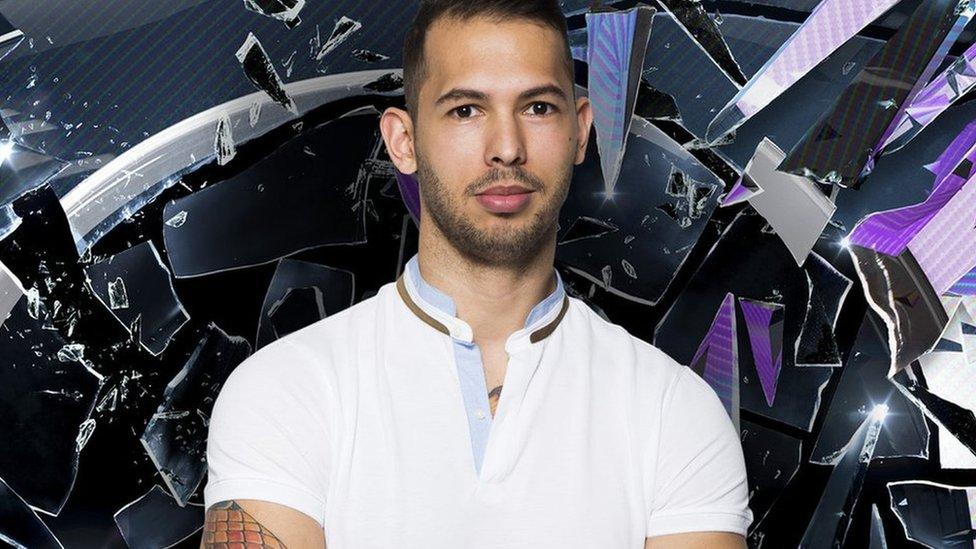Andrew Tate: 'I fear online influencer radicalised my son'
- Published
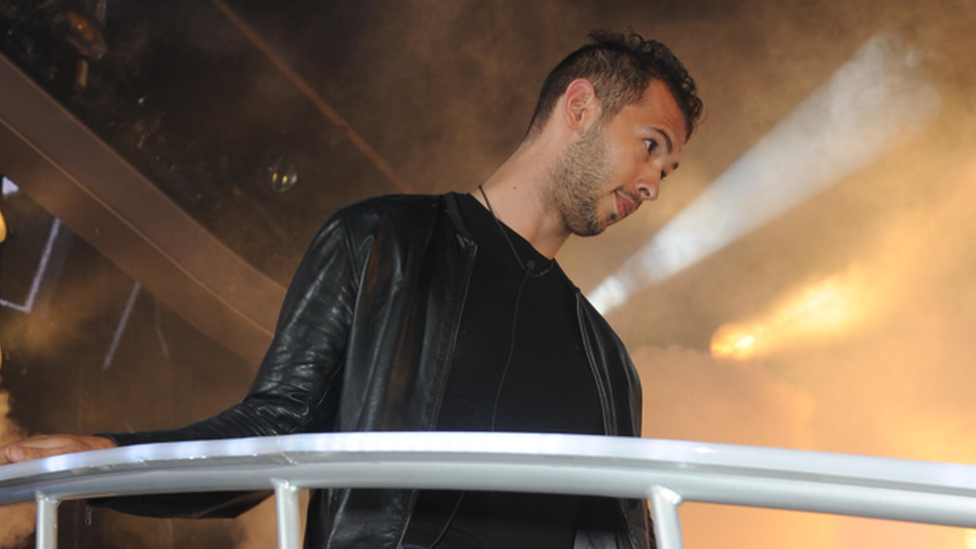
Andrew Tate was a contestant in TV show Big Brother in 2016 and later removed from the house
Will is like many 15-year-old boys. He likes sport, hanging out with mates and spending time on social media, but his mum fears he has been "radicalised".
Jane took a call from her son's school to say Will had been involved in an "incident" involving a female teacher.
She said Will, and some other boys, had been repeating the views of controversial online influencer Andrew Tate to make the teacher "squirm".
Some teachers are worried as they've seen a rise in boys quoting Mr Tate.
One leading child protection expert said the Online Safety Bill, which aims to police the internet, external and could become UK law next year, should protect "impressionable men" from "misogyny".
Jane said Will - not their real names - continued to push the teacher at his school in north Wales even when she told him Mr Tate's views could be described as extreme.
"He sees a man that is strong and powerful and has made lots of money," said Jane of her only son.
Who is Andrew Tate?
Mr Tate is a former kickboxer who rose to fame in 2016 when he was removed from TV show Big Brother over a video which appeared to depict him attacking a woman.
At the time of his removal from the Big Brother house, Mr Tate said the controversial video had been edited, calling it "a total lie trying to make me look bad".
Who is Andrew Tate, the former reality TV star turned influencer with "radical" views?
He went on to gain notoriety online, with Twitter banning him for saying women should "bear responsibility" for being sexually assaulted.
Mr Tate has been banned from other social media platforms like YouTube, Facebook and Instagram, with TikTok also removing him, saying "misogyny is a hateful ideology that is not tolerated".
His posts on other online sites promote misogyny and target women and have millions of views, with the BBC's disinformation and social media correspondent Marianna Spring saying earlier this year his content had "raised concerns about the real-world effect it could have".
Alongside former US president Donald Trump, he has recently been allowed back onto Twitter, external following Elon Musk's takeover.
Mr Tate, who has been approached by the BBC for a comment, told Piers Morgan in a recent interview that his views had been "misunderstood".
He has previously said his comments had been "taken out of context and amplified" to present "false narratives" about him.
'Sexist and horrible'
Jane said her son believes "everything Mr Tate says is taken out of context and used to make him look bad".
After the incident in school, she said she felt relieved the teacher knew the family well enough to understand the view that Will was expressing did not match the values he had been brought up with.
"I was trying to say 'don't you realise how sexist and horrible that is?'," recalled Jane.
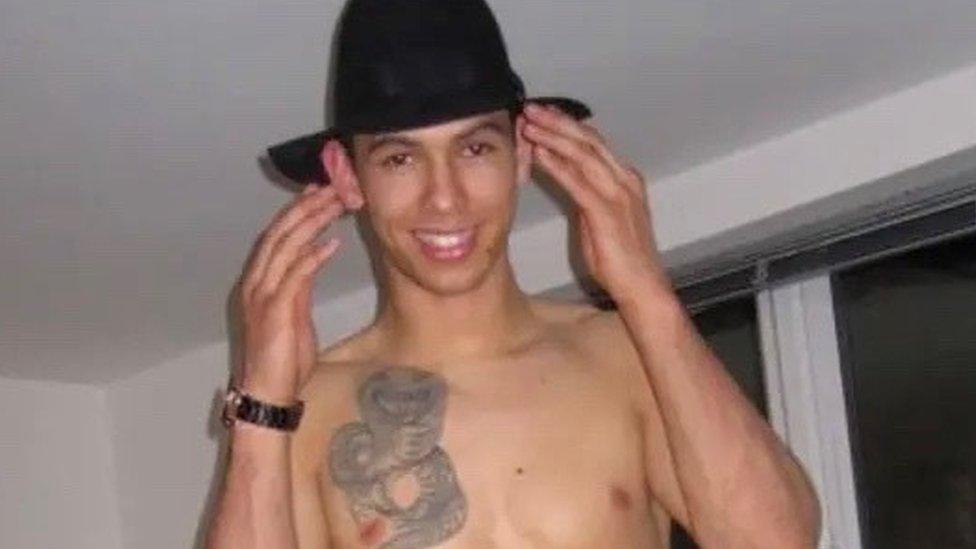
Controversial online influencer Andrew Tate's online videos have millions of views
"It worries me because you hear him speaking and I just think I'd never want anyone from his school to think that we think like that or believe in that sort of thing.
"It's sad because you instil values in children from when they're born. The power of social media sadly outweighs years of good parenting.
"He just gets such a kick out of it. He's always been a wind-up merchant but not by using unkind things to upset people."
Will even showed his mum videos by Mr Tate in an attempt to explain his views.
"I'd like to think long-term, when he's got his own family, this will just be a blip," reflected Jane.
"But equally it feels like radicalisation."
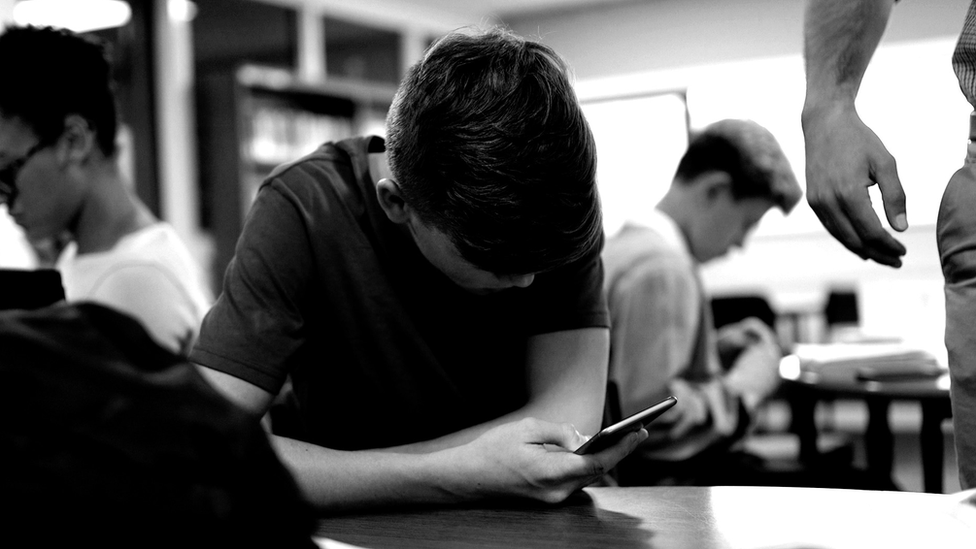
Teachers have expressed concern about the rise of children, particularly boys, sharing radical views that they've seen online
Jane says she listens to Will's views in an attempt to disarm any extreme views in a calm way.
"I don't want to make it something he can't talk about, because then you have no clue," added Jane.
Concern among teachers
Teachers have expressed concern as they've seen a rise in boys quoting Mr Tate. When asked to write about their idols, some secondary school boys wanted to write about Mr Tate.
"The amount of knowledge we have access to is both amazing and overwhelming," said a secondary school teacher in south Wales, who did not want to be identified.
"These kids turn onto the wrong corner of the internet and suddenly they're in a very, very radical place. They read it as gospel."
Another teacher from south Wales has also had experience of boys repeating Mr Tate's views and said they are engaging with his content because of his "image" of a "self-made millionaire".

One teacher has said some schoolboys are drawn to the fact that Andrew Tate portrays himself as a "self-made millionaire"
"That's what is initially drawing those boys in," added the secondary school teacher, who also did not want to be named.
"They were aspiring to be a millionaire with loads of cars and [who] has an air of authority that they wished that they had.
"It wasn't until later that the content they've been interacting with gradually developed into his more extreme views.
"It was then that we started realising that actually his content was radicalising these young boys to adopt similar views."
A third teacher also experienced schoolboys repeating Mr Tate's views at his secondary school.
"This isn't a school problem, this is a general teaching training problem where you aren't taught how to deal with sexism within the classroom," said the south Wales-based teacher, who also did not want to be named.
They fear that because the comments are "low-level" and "generally non-threatening", they "aren't necessarily being taken seriously, not just in schools, but in society in general".
'Manipulates'
Psychologist Dr Nia Williams added Mr Tate's views could make boys and young men feel disenfranchised and unfairly treated by the rest of society.
"During your teenage years, you are finding yourself, developing who you are, your morals and what you stand for," said Dr Williams, a lecturer at Bangor University's school of education and human development.
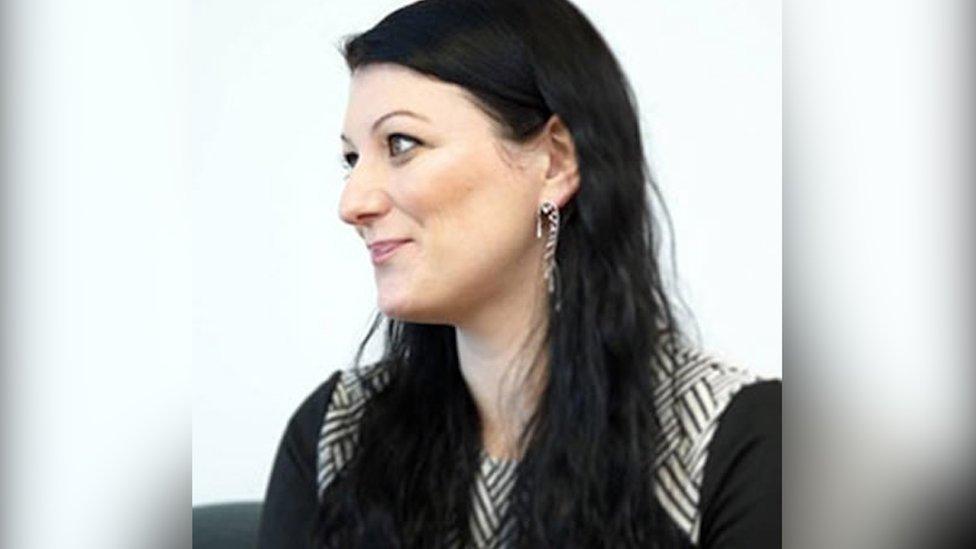
Dr Nia Williams has said it is important for parents to talk to their children and challenge any potentially radical views
"He is on the social media sites that appeal to these young people. However, the messages he's giving out is having a detrimental impact on the youth today. That can have a lifelong impact on the type of person that you will become."
Dr Williams is concerned the young boys who share extreme views "don't think about the consequence and impact" on others or their future careers.
But she warned it was vital that equality was not just for women but men as well because "it is still skewed towards women", which could "brainwash frustrated" young men.
"I think it's really important that the message we give is that society is equal," she said.
"It's important for males to feel protected and it could be we're still working on that equality for young men."
'Self-regulation online not working'
The NSPCC has said self-regulation of social media and online content platforms had "entirely failed" and called on the UK government to "protect" people.
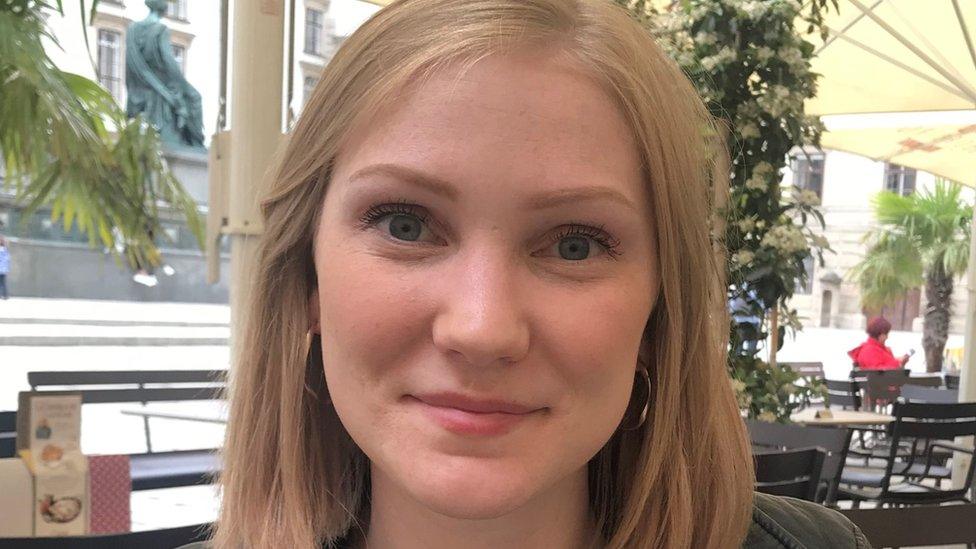
Hannah Ruschen of the NSPCC says online platforms are struggling to react and remove inappropriate content
"These people are not keeping on top of their responsibilities to protect users from harm online, so we need legislation put in place by the government," said Hannah Ruschen, senior policy officer at NSPCC.
"It's very, very difficult for companies to keep on top of snowballing content and we're seeing the videos and images shared in the millions.
"Companies are finding it very difficult to keep up with that kind of reactionary approach to content to removing content after it's been identified as being harmful.
"So what we need to see is a proactive approach and understanding what materials could be harmful and making sure that they actually remove that."
Stricter government laws call
Leading child protection expert Dai Davies, a former head of Royal Protection, has said children should be protected against "this kind of viral aspect of misogyny" and also called for stricter government laws online.
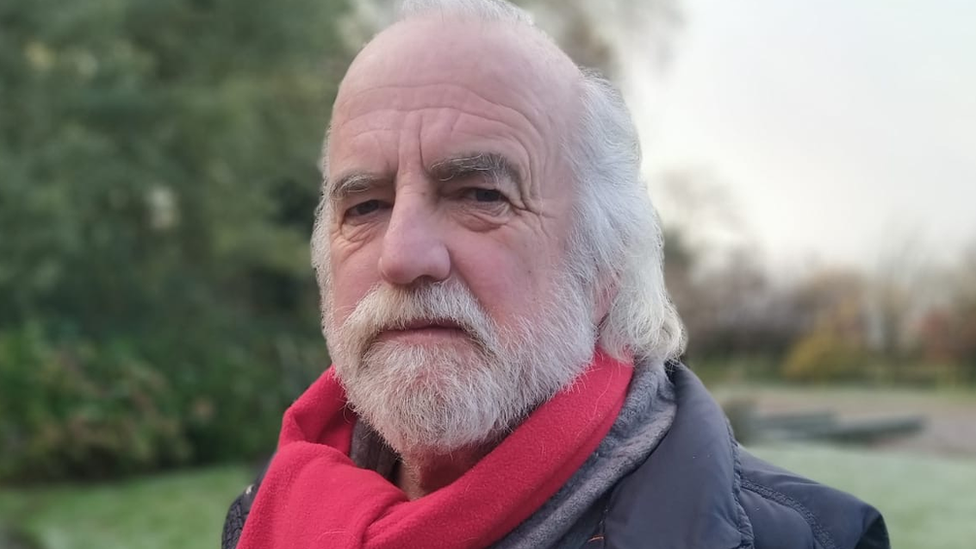
Former head of Royal Protection Dai Davies says misogyny online was dangerous for women
"What worries me about Mr Andrew Tate is that he seems now to be able to almost print and say things which I would regard as misogyny and detrimental to the safety of females," said Mr Davies, a former Met Police divisional commander.
"When are we going to realise in this country, politicians and public opinion, unless you stop this kind of attitude, this kind of issue on the web, where young, impressionable men can actually think it's OK to regard women as inferior beings, I don't think he and that kind of misogyny can be tolerated.
"Where is the moral compass of these companies? Where are the ethics of those who just want to make money. I would've hoped there will be some legislation."
Controversial measures which would have forced big technology platforms to take down legal but harmful material have recently been removed from the Online Safety Bill that is currently going through Parliament.
The UK culture secretary had previously accused tech firms of prioritising profits over children
But the UK government said when the bill becomes law tech companies would need to prevent children from being exposed to illegal content and harmful or age-inappropriate material.
"We are putting a stop to unregulated social media causing harm to our children," said a spokesperson for the Department for Digital, Culture, Media & Sport.
"Under the Online Safety Bill, tech platforms will need to prevent under-18s from being exposed to illegal content and other harmful or age-inappropriate material, including violent content or face huge fines."
If you have been affected by any of the issues in this story, the BBC Action Line has links to organisations which can offer support and advice.
- Published29 November 2022

- Published20 November 2022
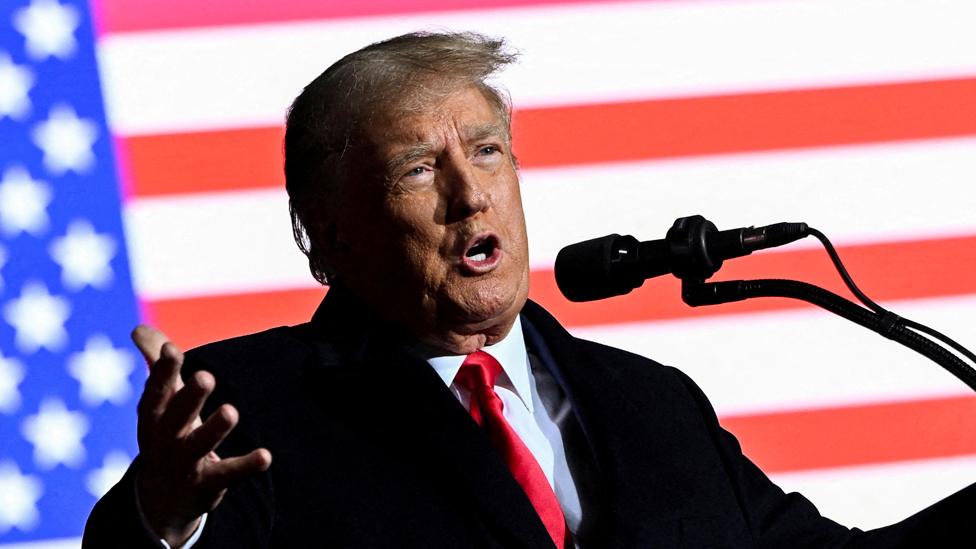
- Published23 August 2022

- Published14 June 2016
